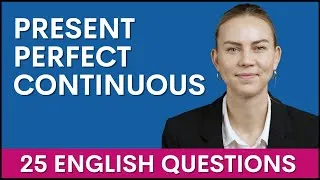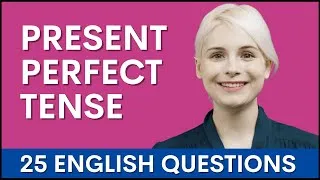PRESENT TENSE | Simple, Continuous, Perfect | Learn English Grammar Course
795,887 views ・ 2021-10-06
ವೀಡಿಯೊವನ್ನು ಪ್ಲೇ ಮಾಡಲು ದಯವಿಟ್ಟು ಕೆಳಗಿನ ಇಂಗ್ಲಿಷ್ ಉಪಶೀರ್ಷಿಕೆಗಳ ಮೇಲೆ ಡಬಲ್ ಕ್ಲಿಕ್ ಮಾಡಿ.
New videos
Original video on YouTube.com
ಇಂಗ್ಲಿಷ್ ಕಲಿಯಲು ಉಪಯುಕ್ತವಾದ YouTube ವೀಡಿಯೊಗಳನ್ನು ಈ ಸೈಟ್ ನಿಮಗೆ ಪರಿಚಯಿಸುತ್ತದೆ. ಪ್ರಪಂಚದಾದ್ಯಂತದ ಉನ್ನತ ದರ್ಜೆಯ ಶಿಕ್ಷಕರು ಕಲಿಸುವ ಇಂಗ್ಲಿಷ್ ಪಾಠಗಳನ್ನು ನೀವು ನೋಡುತ್ತೀರಿ. ಅಲ್ಲಿಂದ ವೀಡಿಯೊವನ್ನು ಪ್ಲೇ ಮಾಡಲು ಪ್ರತಿ ವೀಡಿಯೊ ಪುಟದಲ್ಲಿ ಪ್ರದರ್ಶಿಸಲಾದ ಇಂಗ್ಲಿಷ್ ಉಪಶೀರ್ಷಿಕೆಗಳ ಮೇಲೆ ಡಬಲ್ ಕ್ಲಿಕ್ ಮಾಡಿ. ವೀಡಿಯೊ ಪ್ಲೇಬ್ಯಾಕ್ನೊಂದಿಗೆ ಸಿಂಕ್ನಲ್ಲಿ ಉಪಶೀರ್ಷಿಕೆಗಳು ಸ್ಕ್ರಾಲ್ ಆಗುತ್ತವೆ. ನೀವು ಯಾವುದೇ ಕಾಮೆಂಟ್ಗಳು ಅಥವಾ ವಿನಂತಿಗಳನ್ನು ಹೊಂದಿದ್ದರೆ, ದಯವಿಟ್ಟು ಈ ಸಂಪರ್ಕ ಫಾರ್ಮ್ ಅನ್ನು ಬಳಸಿಕೊಂಡು ನಮ್ಮನ್ನು ಸಂಪರ್ಕಿಸಿ.







